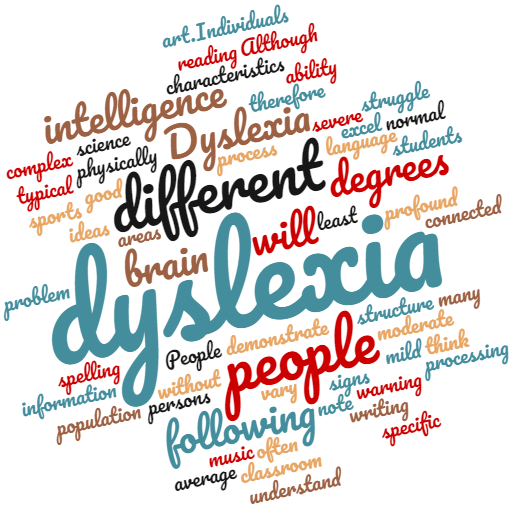Dyslexia: Why do Many Treatment Plans Fail?

Signs and symptoms of dyslexia fall into two types: neurological (brain function) and educational. Most tutors who work with Dyslexia focus on either one aspect of dyslexia or the other. Our approach at The Cognitive Emporium is different: we address both the neurological and the educational and this sets us apart.
In a typical classroom of 30 students, 5 or 6 will have dyslexia, 20% of the population. Although people with dyslexia struggle with reading, writing and spelling, they often excel in science, sports, music, or art. Individuals with dyslexia have normal intelligence, and many have above average intelligence.
Dyslexia is a specific information processing problem and is not connected with the ability to think or to understand complex ideas. The structure of the brain is physically different and people with dyslexia process language in different areas of the brain than people without dyslexia.
People with dyslexia will demonstrate at least 3 or more of the following warning signs. It is good to note that there are different degrees of Dyslexia: mild, moderate, severe, and profound, and therefore, persons vary in degrees of the following characteristics:
Preschool/Kindergarten
- A history of speech delays
- Difficulty recognizing and producing rhymes
- Difficulty learning to tie their shoes
- Difficulty remembering and following directions
- Trouble memorizing their address, phone number or alphabet
- Chronic ear infections during the early years
- Difficulty learning the sounds of alphabet
- Letter or number reversal continuing past the end of first grade
- Confusion of letters whose sounds are similar (d/t, b/p, f/v)
- Often can’t remember sight words (they, were, does) or homonyms (their, they’re, there)
- Difficulty segmenting words into individual sounds and blending sounds to form words
- Difficulty telling time with a clock with hands
- Dysgraphia, (the slow, non-automatic handwriting that is difficult to read)
- Trouble with math, memorizing multiplication tables, memorizing a sequence of steps, directionality
- Make predictable reading spelling errors involving guessing based on shape or context, difficulties with sequencing sound/symbols resulting in reversal of letters (post, pots), omissions (stun, sun), additions(burnt/bunt), substitutions (horse/house), and transpositions(stop/pots)
- Skips or misreads prepositions (at, to, of)
- Ignores prefixes and suffixes
- Difficulty remembering and applying spelling rules
- Difficulty with reading comprehension and learning new information from text because of underlying word, recognition difficulties
- Significant problems with written language due to problems with spelling and organization
High School, College, and Adult
- Large discrepancy between verbal skills and written compositions
- Slow rate of reading
- Difficulty mastering a foreign language
- Difficulty taking notes in class
- May have to read a page 2 or 3 times to understand it
- Still has difficulty with spatial directions
- Difficulty spelling
IF YOU RECOGNIZE ANY OF THESE SIGNS AND SYMPTOMS, BOOK A 10 MINUTE CALL
If you've seen or suspect any number of these signs and symptoms in your child's behaviour, we urge you to schedule a complimentary 10 minute phone call with Kyra Minichan, The Cognitive Emporium founder and developer of our unique P.A.T.H. assessment and treatment approach.
Together we will take the first steps on a P.A.T.H. to discover your child's unique superpowers.

